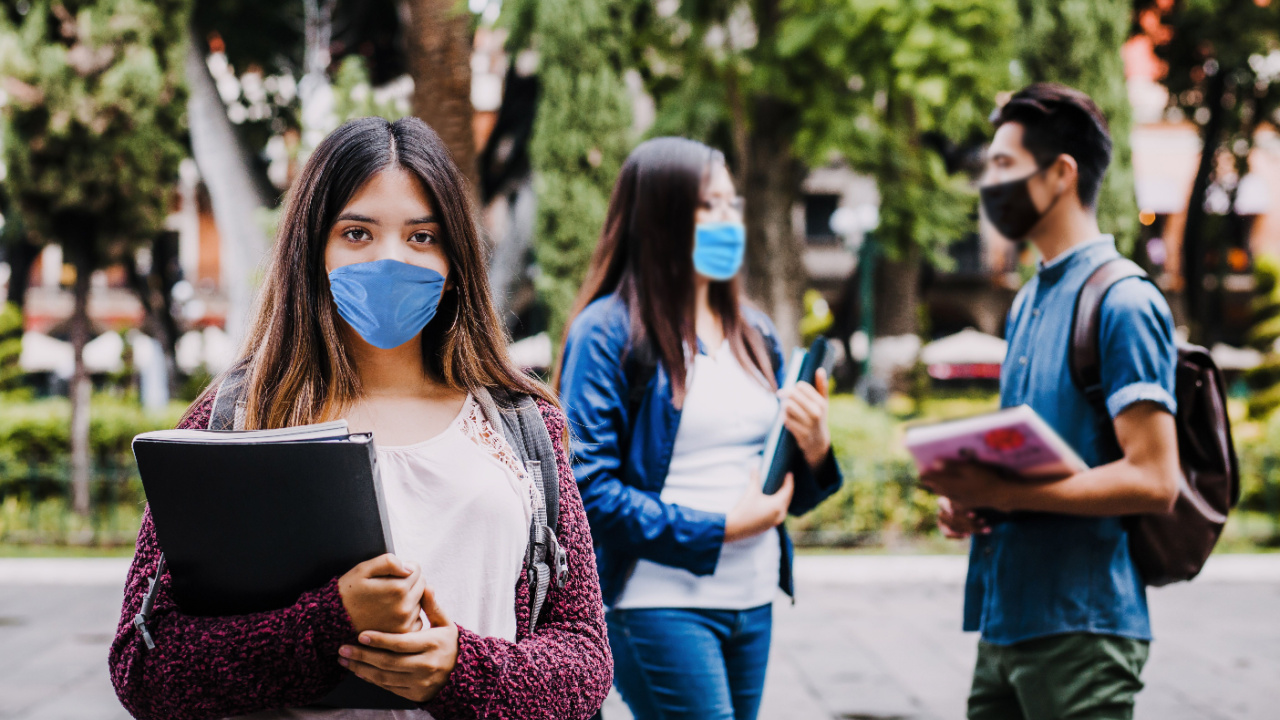Flu is one of the common diseases often associated with the winter season. About 20 million to 40 million Americans contract the flu disease every hibernal season.
You can self-diagnose flu because its symptoms (including body aches, fever, and sore throat) are quite easy to detect. However, you should see the doctor for further diagnosis.
The cause of the flu is the influenza virus. While flu is not a serious or chronic disease, it can be fatal for pregnant women, children below 5 years old, seniors older than 65 years old, and people with underlying diseases (such as kidney problems, diabetes, asthma, chronic lung disease, obesity, HIV, and cancer).
If anyone in your family has any of the diseases mentioned above, please follow these tips to prevent them from contracting the influenza disease.
Get Vaccinated

Image Credit: Deposit Photos.
Prevention, they say, is better than cure. Vaccines help your body prepare for the virus. That way, whenever your immune system makes contact with the influenza virus, it will know the necessary biochemical weapons to use against it.
Vaccine is your best shot at conquering the influenza virus, especially if you have an underlying disease.
Some vaccines, like the tetanus vaccine, can last for a decade, but the flu vaccine shot only lasts for 6 months. Every year, ensure that every family member takes the flu vaccine.
Wash Your Hands Often

Image Credit: Shutterstock.
It seems simple, but being hygienic eliminates many of our microbial troubles. All you need to eliminate potential pathogens, including the flu virus, is regular soap and warm water. If soap is inaccessible, you can use a sanitizer containing at least 60% alcohol.
Wash your hands before eating, after using the restroom, and after using public transport.
Do Not Touch Your Eyes and Nose

Image Credit: Shutterstock.
Coming from work, your hands must have been exposed to surfaces and people who might be infected with the flu virus. While some of these people might not be infected, they might carry the virus unknowingly.
Your nose, mouth, and eyes are portals into your blood system. If a bacteria or virus can access those areas, they can easily get into your bloodstream and replicate in you. On replication, the infection worsens, and the symptoms become obvious.
Cough and Sneeze into a Tissue or Elbow

Image Credit: Deposit Photos.
While you must protect yourself from infected people, you must prevent others from contracting the disease from you. Flu is an airborne disease, meaning it goes from host to host via the air. Sneezing uncontrollably into the atmosphere puts everyone in that area at risk of infection.
Disinfect Surfaces in Your Home

Image Credit: Deposit Photos.
As I have said earlier, being hygienic is the second-best weapon against the flu besides vaccination. Germs can stay on surfaces for years, waiting for the perfect host. By disinfecting commonly touched surfaces, you are halting the microorganism’s cycle. These commonly touched surfaces include tablets, door handles, phones, desks, and children’s toys.
To disinfect surfaces, use a weak bleach solution or an EPA-approved disinfectant. Apply the bleach on cotton wool or tissue paper and clean the surfaces.
Discourage the Sharing of Personal Items

Image Credit: Shutterstock.
Personal items like toothbrushes and eating utensils can be transport mediums for the influenza virus. In your home, ensure that your kids are not sharing spoons without washing them properly with soap and water. Teach them how to keep their toothbrushes separately and enlighten them on the dangers of sharing personal items.
Do Not Reuse Tissues

Image Credit: Deposit Photos.
Let’s say one of your children has catarrh, and they would have to use tissues to blow their nose. Ensure that they dispose of the tissues after usage. If they settle for towels and handkerchiefs, ensure they use clean ones. Using the same handkerchief or towels without cleaning it can encourage the spread of the influenza virus.
Keep Infected Children Out of Daycare

Image Credit: Shutterstock.
Do not allow your child to go to daycare or school if the influenza virus infects them. Children are not the best observers of hygiene or health protocols. They love playing together and might be unable to tell that someone is infected. Keeping your child out of school pending the time they recover is the humane thing to do.
Do Not Allow Your Children Near Smokers

Image Credit: Shutterstock.
Secondhand smoke can upset the mucous membranes of your child’s sinuses, nose, and lungs, making them susceptible to influenza disease. Smoking is not healthy for adults, let alone children. Ban any grownup from smoking in the house or near your kids. Outdoor spaces are the best locations to smoke weed or cigarettes.
Avoid People with Flu Symptoms

Image Credit: Shutterstock.
You’re on a bus, and someone sneezes uncontrollably. Your next line of action is to cover your nose or leave that vicinity politely. If you can, wear face masks when using public transport. Remember, even people who have no symptoms might be carrying the influenza virus.
Also, do not let strangers touch your child. Protect your children from anyone showing the flu symptoms.
Avoid Public Areas In Case of a Flu Pandemic

Image Credit: Shutterstock.
During a flu pandemic, a widespread occurrence of the flu disease, avoid public areas at all costs. This includes public toilets, cinemas, gaming centers, transport, and restaurants. If you must leave your house, please wear a nose mask and sanitizer. Disinfect your hands from time to time and maintain social distancing.
See a Medical Practitioner

Image Credit: Shutterstock.
As I mentioned earlier, flu is not a serious disease, but it can be fatal to people with an underlying disease. Underlying diseases can go full incognito for months or years. People can develop diseases without knowing.
Diseases like HIV and diabetes might not show symptoms in the first year of development. Regularly visiting the hospital will help you keep tabs on your health status. The doctors can also fish out the flu virus before it becomes a full-blown infection.
Eat Balanced Diet

Image Credit: Deposit Photos.
While a balanced diet does not prevent anyone from contracting the influenza virus, it can help boost your immunity. It ensures that your white blood cells are equipped with the necessary vitamins and nutrients needed to fight the flu virus. Do not underestimate the power of a balanced diet. In addition, increasing the consumption of certain foods like berries, citrus fruits, fish oil, leafy greens, and nuts enhances your immune system.